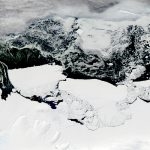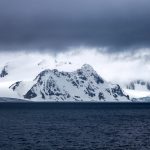 December 12, 2020 3:29 pm
Published by Climate Extremes
December 12, 2020 3:29 pm
Published by Climate Extremes
The challenges of 2020 have impacted our briefing notes but we combined forces with NESP ESCC to produce an impressive overview of climate sensitivity. Our mid-term review has invigorated the team and a science-teacher workshop is well underway for AMOS.
 December 12, 2020 1:49 am
Published by Climate Extremes
December 12, 2020 1:49 am
Published by Climate Extremes
The cross-institutional, collaborative nature of the Australian Research Council (ARC) Centres of Excellence has allowed a re-imagining of the Australian PhD experience. Here we outline the steps the ARC Centre of Excellence for Climate Extremes has taken to support our graduate students during COVID.
 December 11, 2020 4:15 pm
Published by Climate Extremes
December 11, 2020 4:15 pm
Published by Climate Extremes
It has been an unprecedented year in academia in 2020, a year where many people have been doing it tough in particular those of you in Victoria. The impact of COVID will take a long time to be fully realized of course, with impacts on our students, researchers, administration and technical teams that we could not anticipate.
 November 27, 2020 3:25 pm
Published by Climate Extremes
November 27, 2020 3:25 pm
Published by Climate Extremes
Using atmospheric model experiments, researchers have shown that the warming of the tropical Indian Ocean relative to the other two tropical ocean basins can effectively control Walker Circulation changes in the Pacific and Atlantic oceans and influence climate far beyond the Indian Ocean region.
 November 27, 2020 9:34 am
Published by Climate Extremes
November 27, 2020 9:34 am
Published by Climate Extremes
This paper details a new approach to evaluating the performance of land surface models, the component of climate and weather models that simulates land surface processes. It focuses on the cycle of solar radiation during daylight hours and how the energy from the sun is exchanged between the land surface and lower atmosphere.
 November 24, 2020 3:11 pm
Published by Climate Extremes
November 24, 2020 3:11 pm
Published by Climate Extremes
This study is based the well-established fact that sea ice cover is very closely related to surface air temperature, so that we can use trends in Antarctic sea ice as an independent validation for the reanalysis trends.
 November 24, 2020 3:01 pm
Published by Climate Extremes
November 24, 2020 3:01 pm
Published by Climate Extremes
In this paper, the researchers investigated how a major glacier tongue break in the Mertz polynya in Antarctica impacted phytoplankton blooms. Larger phytoplankton blooms increase the amount of carbon that can be stored in the deep ocean.
 November 24, 2020 12:27 pm
Published by Climate Extremes
November 24, 2020 12:27 pm
Published by Climate Extremes
In this paper, the researchers investigated how dryness, represented by the aridity index, affects the inter-annual variability of ecosystem iso/anisohydricity at the regional scale, estimated using satellite microwave vegetation optical depth observations.
 November 24, 2020 12:09 pm
Published by Climate Extremes
November 24, 2020 12:09 pm
Published by Climate Extremes
By grouping weather systems by similar patterns rather than averaging conditions over months, seasons or years, CLEX researchers found that between Australia and Antarctica, the ‘doughnut’ structure of SAM is split into multiple ‘flavours’ and is more likely to have ‘bite marks’ out of it than be a perfect ring.
 November 23, 2020 3:56 pm
Published by Climate Extremes
November 23, 2020 3:56 pm
Published by Climate Extremes
CLEX researchers and colleagues examined the contribution to uncertainty in simulated future changes in crop yields using the change-factor method and an additional, more sophisticated, statistical downscaling method of generating realistic future climate data from climate model output.









